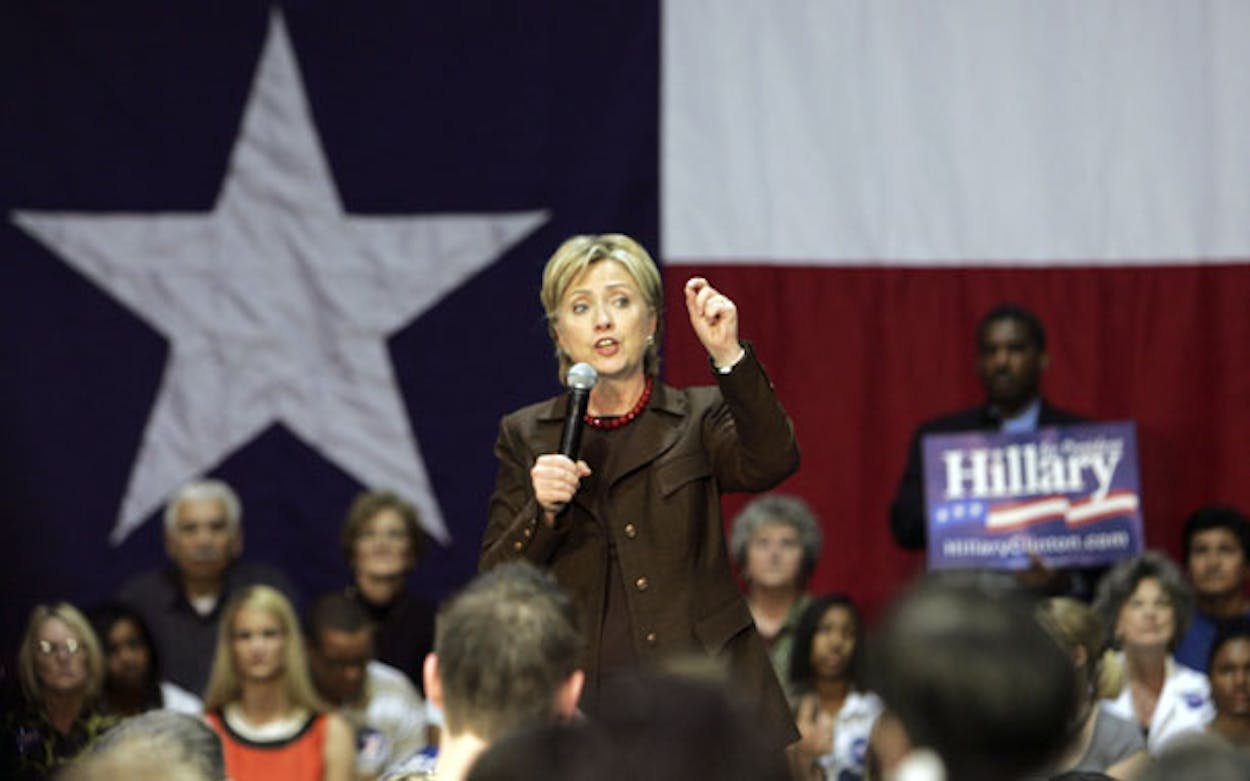This evening, Hillary Clinton will appear in Las Vegas for the first Democratic presidential debate of the 2016 cycle, which is being hosted by CNN and Facebook. She won’t be the only candidate on stage, of course, but for those of us covering Texas politics she may as well be. Her closest rival for the nomination, according to national polls, is Bernie Sanders. The independent senator from Vermont has elicited enthusiasm on America’s left for both his unabashedly progressive views—he describes himself as a democratic socialist, although some in America’s socialist community dispute his credentials—and, I think, for his spirited refusal to accept the inevitability of the Clinton candidacy. And it should be said that Sanders has plenty of fans in Texas, too. Back in July, some 13,000 people turned out to see him speak at rallies in Houston and Dallas; as the Texas Tribune’s Patrick Svitek noted at the time, Sanders’s trip “easily represented the most well-attended visit to the state by any presidential candidate so far this election cycle. “
Still, it’s hard for me to imagine a scenario in which Sanders wins the Democratic primary in Texas. Taking a big picture view, the Clinton vs. Sanders rivalry is a proxy fight between centrist Democrats and the explicitly progressive left. Since the 2008 primary came down to Clinton and Barack Obama–an explicitly progressive Democrat who ultimately won the nomination and the presidency and a second term in 2012—I can see why Democrats might be optimistic about Sanders’ chances in some states. But his supporters in Texas should keep in mind that Clinton won the primary here in 2008, and that they probably weren’t even born the last time Ralph Yarborough was elected to represent Texas in the United States Senate, in 1964.
Plus, it remains the case that Hillary Clinton is more popular among Texas Democrats than one might think. I don’t fully understand why that it is, but I noticed as much in 2008, when I reported on the Democratic primaries from about a dozen states. Democrats in every state were excited about Obama, who represented the future as much as his party’s left. Only in Texas did I regularly encounter Democratic voters who were sincerely, spontaneously enthusiastic about Clinton. She actually seemed to elicit more hometown pride in San Antonio than Arkansas; as I was regularly reminded, she and Bill lived there in the 1970s, when they were working on George McGovern’s presidential campaign.
Clinton has made a point of staying in touch with her Texas friends. Yesterday, she was endorsed by Joaquin Castro, Leticia Van de Putte, and Carlos Uresti; Thursday she will be endorsed by Julián Castro, who is widely considered a potential running-mate should she win the nomination. The newsworthiness of these endorsements is somewhat mitigated by their inevitability. Since some Texas Democrats are probably waiting to see what Joe Biden decides to do, it’s a little premature to make sweeping generalizations. But it’s a reasonable supposition that unless otherwise specified, any given Texas Democrat is a Clinton supporter.







